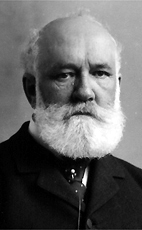This article does not cite any sources .(December 2006) (Learn how and when to remove this template message) |
The 7th New Brunswick general election was held on 20 January 1890, to elect 41 members to the 27th New Brunswick Legislative Assembly, the governing house of the province of New Brunswick, Canada. The election was held before the adoption of party labels.

The provinces and territories of Canada are sub-national governments within the geographical areas of Canada under the authority of the Canadian Constitution. In the 1867 Canadian Confederation, three provinces of British North America—New Brunswick, Nova Scotia, and the Province of Canada —were united to form a federated colony, becoming a sovereign nation in the next century. Over its history, Canada's international borders have changed several times, and the country has grown from the original four provinces to the current ten provinces and three territories. Together, the provinces and territories make up the world's second-largest country by area.

New Brunswick is one of four Atlantic provinces on the east coast of Canada. According to the Constitution of Canada, New Brunswick is the only bilingual province. About two thirds of the population declare themselves anglophones and a third francophones. One third of the population describes themselves as bilingual. Atypically for Canada, only about half of the population lives in urban areas, mostly in Greater Moncton, Greater Saint John and the capital Fredericton.

Canada is a country in the northern part of North America. Its ten provinces and three territories extend from the Atlantic to the Pacific and northward into the Arctic Ocean, covering 9.98 million square kilometres, making it the world's second-largest country by total area. Canada's southern border with the United States, stretching some 8,891 kilometres (5,525 mi), is the world's longest bi-national land border. Its capital is Ottawa, and its three largest metropolitan areas are Toronto, Montreal, and Vancouver. As a whole, Canada is sparsely populated, the majority of its land area being dominated by forest and tundra. Consequently, its population is highly urbanized, with over 80 percent of its inhabitants concentrated in large and medium-sized cities, with 70% of citizens residing within 100 kilometres (62 mi) of the southern border. Canada's climate varies widely across its vast area, ranging from arctic weather in the north, to hot summers in the southern regions, with four distinct seasons.
The government of Andrew George Blair was able to remain in power with the support of Independent MLAs. Of forty-one MLAs, twenty-six supported the government, and fifteen formed the opposition.

Andrew George Blair was a Canadian politician in New Brunswick, Canada. He served as Premier for 13 years and 136 days, the second-longest tenure in the province's history, behind Richard Hatfield's tenure of 16 years and 310 days.
A Member of the Legislative Assembly (MLA), or a Member of the Legislature (ML), is a representative elected by the voters of a constituency to the legislature or legislative assembly of a sub-national jurisdiction.
| New Brunswick general election, 1890 | ||
|---|---|---|
| Party | Leader | Seats |
| Government (Liberal) | Andrew George Blair | 26 |
| Opposition (Conservative) | Daniel L. Hanington | 15 |
| This New Brunswick-related article is a stub. You can help Wikipedia by expanding it. |
| This elections in Canada-related article is a stub. You can help Wikipedia by expanding it. |





